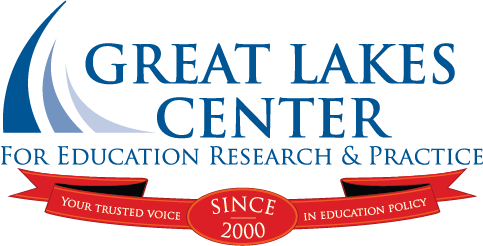January 18, 2024
Balancing Societal Goals and the Rights of Parents and Students in Education
A “Think Twice” review of a think tank report from the folks at the National Education Policy Center.

JANUARY 16, 2024
Balancing Societal Goals and the Rights of Parents and Students in Education
An NEPC Review funded by the Great Lakes Center
Key Takeaway: Policymakers must strive to strike a balance between different stakeholder interests while upholding the core societal goal and essential government role of educating the public.
GRAND RAPIDS, MI (January 16, 2023) – A vocal minority of parents has, over the past couple years, invoked the idea of “parents’ rights” to demand curricular and policy changes that affect not only their own children, but all children within reach of those changes. These parents have, for example, sought to alter history curricula on slavery and race, to dictate how (and whether) schools teach about sexual orientation and gender identity, to remove books in school library collections, and to set school policies relating to transgender students. Interestingly, the most vocal parents taking part in campaigns for parents’ rights tend to see themselves as standing against the state and its schools, instead of standing inside a democratic community that strives for inclusive participation, informed inquiry, and respectful deliberation among the members of the community.
In a new NEPC policy brief, The Conflict Over Parents’ Rights, Professor Vivian Hamilton of William & Mary Law School details the politicization of parents’ rights and specific rights and responsibilities of various stakeholders, and she explains how competing rights of parents and schools can be reasonably aligned in practice.
While the U.S. Supreme Court has held that the Constitution protects parents’ right to choose educational settings, allowing them to enroll children in religious or other private schools, it has never held that the Constitution gives parents the right to dictate public school curricula or demand individualized exemptions. While many states have enacted policies that do allow parents to exempt their children from specific requirements such as health or sex education, courts have consistently found there is no constitutional entitlement to such exemptions.
Further, lower federal courts have consistently denied parents’ claims of greater control. In the overwhelming majority of cases, these lower courts have rejected parents’ challenges to school curricula and policies, including religiously grounded challenges. Instead, they have reasoned that to give parents such broad authority would result in an unworkable burden on school systems.
During the COVID-19 pandemic and emerging as a backlash to racial-justice initiatives, groups of parents such as the conservative group Moms for Liberty organized to campaign against a variety of perceived overreaches-from mask mandates to use of preferred pronouns. Republican politicians aligned with these groups and began introducing legislation prohibiting, for instance, the discussion of topics and the use of books that (primarily) conservative parents found objectionable. Proponents of such legislation invoked a purported need to prevent schools from indoctrinating children with progressive political messages.
What has been obscured in recent controversies, however, is that public schools are funded by the government to support broad societal goals, such as educating our entire multicultural, diverse population to participate fully in our democratic civic culture. Indeed, the Supreme Court has found not only that states have primary control of public education, but also that they bear the responsibility for teaching the nation’s youth the knowledge and skills necessary to understand and participate in such important government activities as voting and jury duty. Additionally, public schools have a responsibility to cultivate understanding of and respect for individual differences necessary to allow tomorrow’s adults to engage productively in the increasingly diverse workplace and in society.
Because parents do presumably have the welfare of children in mind when they lobby for or against elements of public schooling, policymakers should listen to their concerns to make the most considered decisions possible. They should not, however, craft policy that undermines broad societal goals in order to appease a subset of parents. Instead, policymakers should work to find balance among competing stakeholder interests as productively as possible-without slighting the core societal interest in education. In this new policy brief, Professor Hamilton provides recommendations to assist policymakers as they work toward that end.
Find The Conflict Over Parents’ Rights, by Vivian E. Hamilton, at:
https://greatlakescenter.orgThis policy brief was made possible in part by the support of the Great Lakes Center for Education Research and Practice (https://greatlakescenter.org).
The National Education Policy Center (NEPC), a university research center housed at the University of Colorado Boulder School of Education, sponsors research, produces policy briefs, and publishes expert third-party reviews of think tank reports. NEPC publications are written in accessible language and are intended for a broad audience that includes academic experts, policymakers, the media, and the general public. Our mission is to provide high-quality information in support of democratic deliberation about education policy. We are guided by the belief that the democratic governance of public education is strengthened when policies are based on sound evidence and support a multiracial society that is inclusive, kind, and just. Visit us at: http://nepc.colorado.edu
The mission of the Great Lakes Center for Education Research & Practice is to support and disseminate high-quality research and reviews of research for the purpose of informing education policy and to develop research-based resources for use by those who advocate for education reform.
Visit the Great Lakes Center website at GreatLakesCenter.org
CONTACTS
Michelle Renée Valladares
(720) 505-1958
michelle.valladares@colorado.eduVivian E. Hamilton
(757) 221-3839
vhamilton@wm.edu
No comments yet.
RSS feed for comments on this post. TrackBack URI
- SEO Powered Content & PR Distribution. Get Amplified Today.
- PlatoData.Network Vertical Generative Ai. Empower Yourself. Access Here.
- PlatoAiStream. Web3 Intelligence. Knowledge Amplified. Access Here.
- PlatoESG. Carbon, CleanTech, Energy, Environment, Solar, Waste Management. Access Here.
- PlatoHealth. Biotech and Clinical Trials Intelligence. Access Here.
- Source: https://virtualschooling.wordpress.com/2024/01/18/balancing-societal-goals-and-the-rights-of-parents-and-students-in-education-2/







